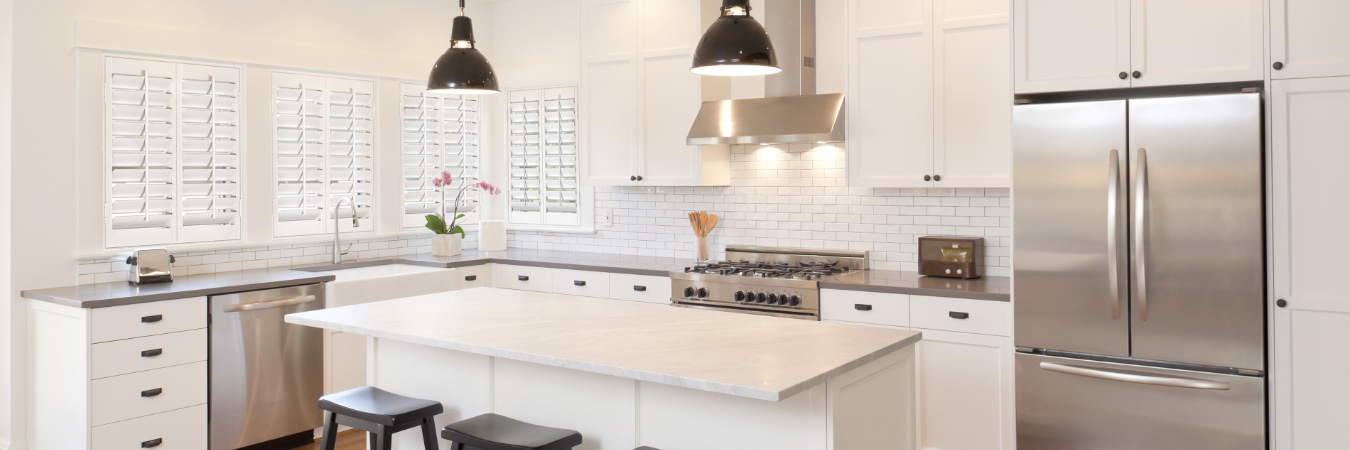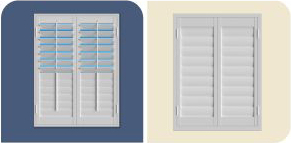
3 Ways Polywood Shutters Are A Better Choice Than Hollow Vinyl And Composite Shutters In Dallas, TX
December 15, 2015
Plantation shutters in Dallas come with different options. And when you are figuring out which non-wood shutter fits your home best, it might be hard to discern the differences. You can easily make the wrong choice and end up buying shutters that won’t last. When it comes to solid polymer shutters, like our best-selling Polywood® shutters, are they worth more than composite shutters? Find out the three ways Polywood shutters are better than composite shutters in Dallas, TX to help you decide.
1. Polywood vs Composite Shutters Durability
Polywood shutters are constructed from a first class solid polymer that results in the most durability, rigidity, and color-retention than any other shutter you can find. With that, the shutter louvers won't be damaged as time goes by. On the other hand, composite shutters are built from a pressed-board core, wrapped with poly-vinyl. The vinyl encapsulating the pressed board is prone to peeling from the core element readily. And this peeling is accelerated in wet, hot, and humid environments. Non-wood shutters are also available as hollow vinyl shutters. But they degrade the fastest because of the substance.Both kinds of non-wood shutters are likely to warp and deteriorate under varying environmental conditions in Dallas. Polywood is built with UV inhibitors that do not absorb heat. And since heat is the biggest culprit in chipping the shutter louvers, Polywood is without a doubt the most durable plantation shutter you can buy.
2. Polywood vs Composite Shutters Color Fastness
Polywood shutters colors include three superior white paints. We bake our paint finishes on each piece at temperatures hotter than it will ever get in Dallas, TX. Our patented finishing process includes UV inhibitors to ensure the color doesn’t fade.
Other types of non-wood shutters come with low quality paint finish. And some composite shutters won’t even have any paint finish at all. In the majority of cases, the vinyl layer is the all the color you get. Although it looks good when installed, this finish fades as time goes by. And as to hollow vinyls, some are painted. But since the material conducts heat, this seriously impacts the finish over time.
3. Polywood vs Composite Shutters Energy Efficiency
Third party tests illustrate that Polywood shutters block up to 30° of temperature and lead to reduction of heat transfer by up to 45%. This means that Polywood insulates up to 70% better than the top solid wood shutter.
It’s the heat blocking properties of the solid polymer material Polywood’s made of that make these plantation shutters so energy efficient. Yet what sets Polywood apart even more from composite shutters is the weatherstripping on the panels and louvers. Simply interlock the pieces of weatherstripping as you close the panels and you get an airtight seal against the weather conditions outside. You won’t find all the energy savings that Polywood offers in any composite shutter.
Our Team In Vegas Experiences The Durability Of Polywood Shutters First Hand
In 2004, Sunburst Shutters Las Vegas had Polywood shutters fastened to the sides of their trucks as part of the graphics. These trucks were parked outside and saw the natural elements Vegas is infamous for. We’re talking intense heat for more than five months a year!
Those plantation shutters had been on our company trucks for almost 7 years. Our team carried out a test on the color retention value of Polywood. We wiped down the dusty Polywood shutter installed on the vehicle. And we held up a new Polywood shutter next it for comparison. The color hadn’t changed one bit. There was no fading or discoloration. This was further validation for us that our paint finish is the best in the market!
And knowing that Polywood can handle that much heat and abuse on the side of a truck for more than 7 years, it’s without a doubt the long lasting shutter for your house in Dallas, TX.


